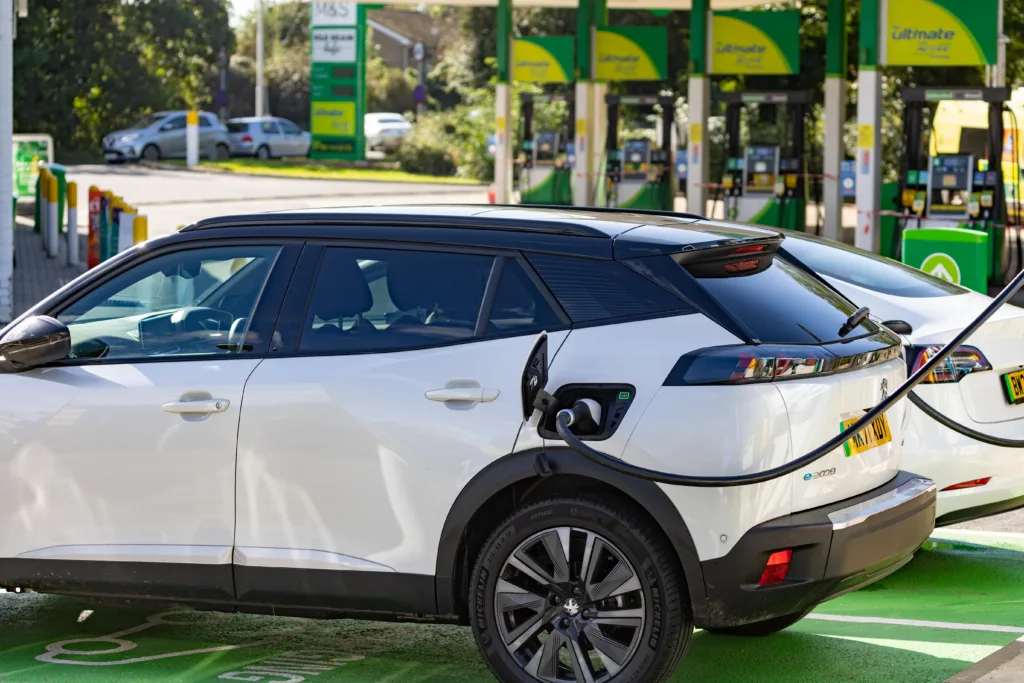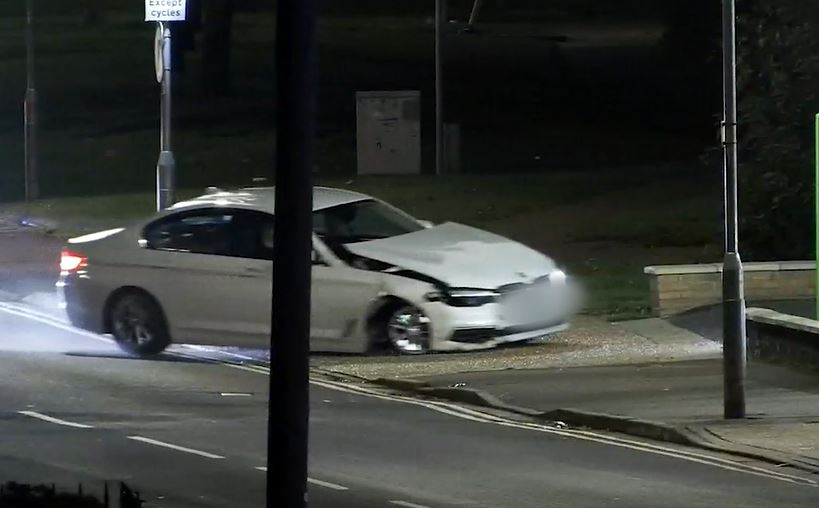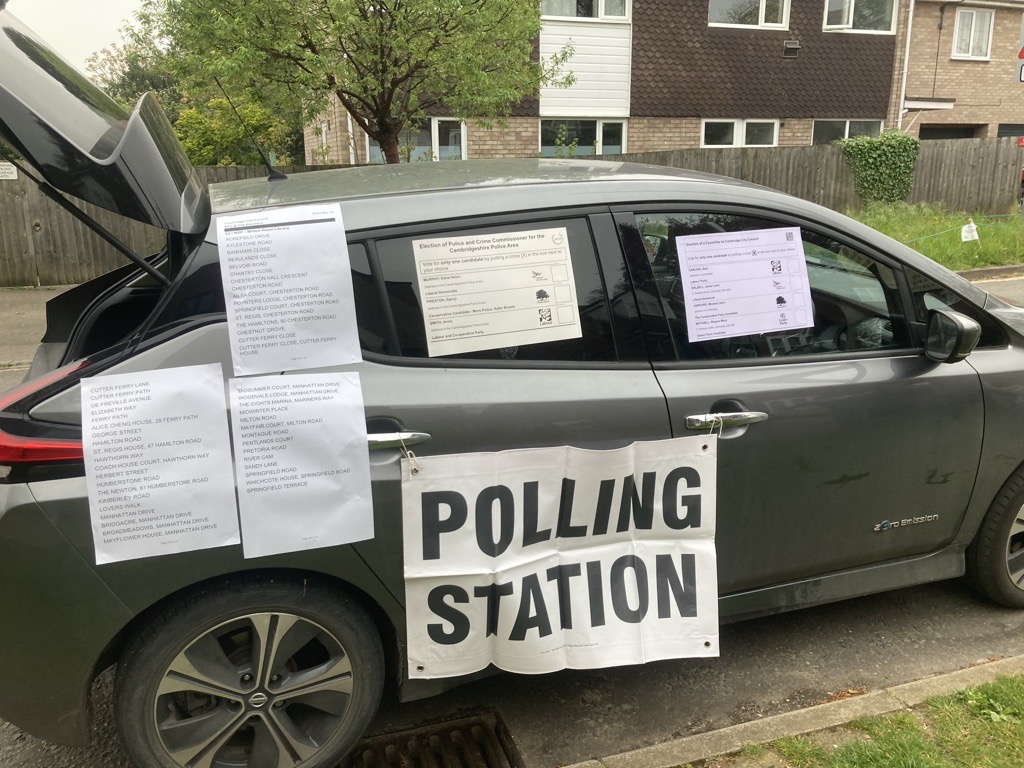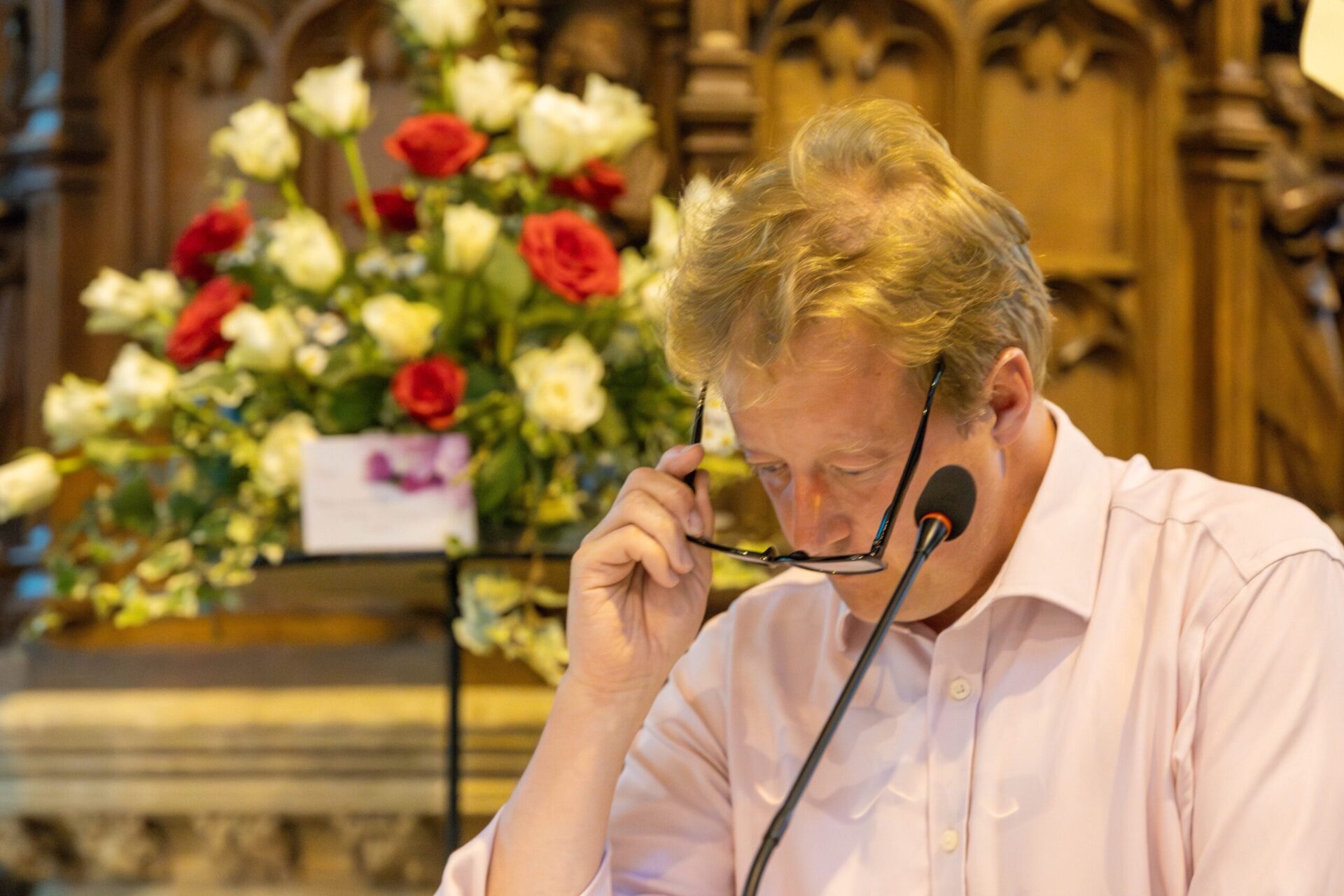A £5m grant will support rapid development of an electric vehicle charging network across Cambridgeshire. The scheme won approval from the county council highways and transport committee on Tuesday.
Benefitting from up to £5m in Local Vehicle Infrastructure (LEVI) Fund, the council is working with the Cambridgeshire and Peterborough Combined Authority to roll out the project.
Officials estimate 10,000 public electric vehicle charge point sockets (EVCP) will be needed across Cambridgeshire by 2030, as motorists choose electric vehicles over petrol and diesel cars.
Sale of new petrol and diesel cars is set to be banned by government from 2035.
Most of these new EVCPs will need to be located on the public highway, says the county council.
“This strategy outlines the form public and private on-street charging will take, the sort of off-street charge and parking spaces that should be created and how charge points can be put in at new developments to allow for roads to be adopted as public highway,” said a council spokesperson.
“Currently, trailing charging cables across footways is not permitted in the county due to safety and accessibility concerns.
“However, charging at home remains the most cost-effective way for EV car owners to power their vehicle.
“This is a particular issue within cities, where many households do not have off-road parking.”

The spokesperson added: “Whilst there are technological alternatives to trailing cables across paths, there is currently no industry consensus around the best infrastructure to use. Any solution needs to consider important factors like maintenance, safety, and liability.”
The potential benefits and limitations of on-road electric vehicle charging will be explored as part of a pilot project which aims to assess the options available, whilst making sure paths remain safe for all.
The council believes there is considerable interest across the private sector in installing EVCPs in the area, so the policy also outlines requirements for licensing and decommissioning arrangements, as well as other key areas including design and accessibility.
By 2035, it is anticipated that there will be over 2.7m disabled drivers using UK roads.
Licenses are needed for any works to the highway, known as Section 50 licenses, these can only be granted by the County Council as the local highways authority.
Cllr Alex Beckett, chair of the county council highways and transport committee, said: “Transport accounts for 27% of Cambridgeshire’s carbon footprint, with car use contributing over half of these emissions.
“Electric vehicles are a cleaner and greener alternative to traditional motoring and are a key part of our transition to a Net Zero county by 2045.
“Working out what EVCPs we need and where is critical to make private car travel more sustainable – particularly for those who cannot travel by bike or on foot.”
The council says officers will develop a plan informed by technical mapping and seek public engagement to find suitable EVCP locations.
They will report back to the highways and transport committee in March, prior to a decision by the environment and green investment committee later in 2024
























